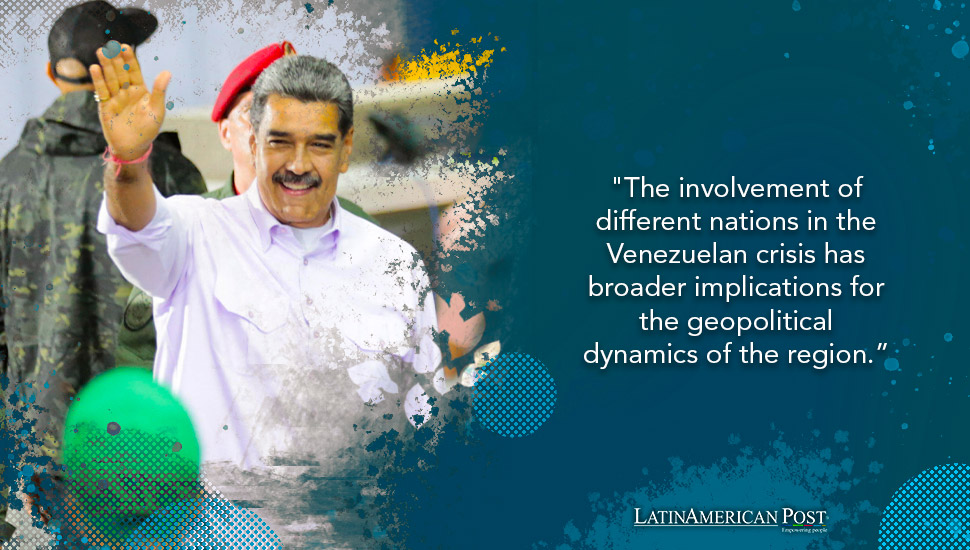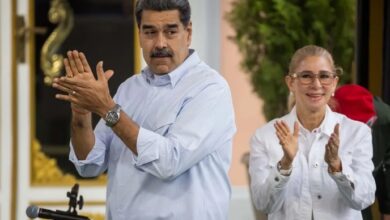Latin America Must Lead on Venezuela’s Democratic Crisis

As Venezuela’s political turmoil deepens, the United States should support, not overshadow, Latin America’s leadership in resolving the crisis. Regional powers like Colombia, Brazil, and Mexico are best positioned to guide Venezuela toward a democratic future.
Venezuela’s political crisis, exacerbated by President Nicolás Maduro’s disputed reelection, presents a critical test for Latin America. The Biden administration’s decision to let regional leaders—particularly those from Colombia, Brazil, and Mexico—take the lead in addressing this crisis is not just strategic; it’s essential. Latin America is not merely a bystander in this situation; it is the region most directly impacted by Venezuela’s instability. Therefore, it has the moral and practical authority to lead the charge toward a democratic resolution.
The involvement of these Latin American nations reflects a significant shift in how regional crises are managed. Historically, the United States has been the dominant force in Latin American affairs, often to the detriment of local autonomy and regional solidarity. By stepping back and allowing Latin American leaders to spearhead the response, the U.S. acknowledges the importance of regional ownership in resolving such conflicts. This approach fosters greater legitimacy for resolving the crisis and encourages a more sustainable and regionally accepted solution.
The leaders of Colombia, Brazil, and Mexico are uniquely positioned to influence the situation in Venezuela. Their relatively stable relations with Maduro offer a channel for dialogue that might be closed to the U.S. due to its historically adversarial stance. These countries also understand the region’s cultural, social, and political nuances, allowing them to engage with Venezuela in ways that are more likely to yield constructive outcomes.
The Limitations of U.S. Intervention
Past U.S. interventions in Latin America have often been characterized by heavy-handed tactics, from economic sanctions to covert operations aimed at regime change. While these strategies might have yielded short-term results, they frequently left long-term scars, fueling anti-American sentiment and undermining the democratic principles they purported to defend. Venezuela itself has been a victim of such policies, with the Trump administration’s “maximum pressure” campaign failing to dislodge Maduro, instead exacerbating the country’s economic collapse and humanitarian crisis.
The current situation in Venezuela requires a different approach—one that prioritizes diplomacy over domination and collaboration over coercion. The Biden administration’s reluctance to impose new sanctions or immediately declare opposition leader Edmundo González the rightful president reflects a cautious, measured strategy that acknowledges the complexities of the Venezuelan crisis. Instead of leading with punitive measures, the U.S. wisely supports Latin American efforts to negotiate a peaceful resolution.
This approach does not imply a lack of concern or commitment from the U.S. Rather, it signals a recognition that solutions imposed from outside often fail to address the root causes of conflict. By supporting Latin American leadership, the U.S. can help facilitate a more inclusive dialogue that includes all relevant stakeholders, increasing the likelihood of a lasting resolution.
Building Regional Solidarity
Allowing Latin American countries to lead in resolving Venezuela’s crisis also strengthens regional solidarity. Latin America has faced numerous challenges recently, from economic instability to rising authoritarianism. In response, there has been a growing recognition that regional problems require regional solutions. The involvement of Colombia, Brazil, and Mexico in the Venezuelan crisis is a testament to this evolving perspective.
Regional leadership in this crisis also sends a powerful message to other authoritarian regimes in the hemisphere: that Latin America will not stand idly by while democracy is undermined. It reaffirms the region’s commitment to democratic values and its willingness to defend them, even in the face of formidable challenges. By working together, Latin American countries can develop an effective collective strategy that reflects the region’s shared interests and values.
Furthermore, these nations’ involvement in the Venezuelan crisis has broader implications for the region’s geopolitical dynamics. As Latin America takes on a more active role in addressing its issues, it can reduce its dependency on external powers and assert its sovereignty in international affairs. This shift could lead to a more balanced and equitable global order, where regional blocs significantly shape their destinies.
A Path Forward for Venezuela
While Venezuela’s road ahead is fraught with challenges, the involvement of Latin American leaders offers a glimmer of hope. Colombia, Brazil, and Mexico are working toward an initial agreement that would see Maduro release political prisoners and cease persecution of the opposition in exchange for a partial easing of sanctions by the United States and the European Union. Though not a panacea, this proposal represents a starting point for more substantive negotiations that could lead to a democratic transition.
The success of these negotiations will depend on the willingness of all parties to engage in good faith. Maduro’s reluctance to cede power or share it with the opposition is a significant obstacle, but sustained pressure from within the region could force him to reconsider. The goal should be to create a democratic space within Venezuela’s government institutions and to pave the way for competitive elections in 2025.
As Latin American leaders continue their efforts, the United States’ role should be one of support, not dominance. The Biden administration must resist the temptation to revert to old habits of unilateral action and instead focus on reinforcing the regional consensus. By aligning its policies with those of its Latin American allies, the U.S. can help ensure that the outcome is not only just but also sustainable.
Also read: Venezuela’s 25-Year Crisis Explained from Prosperity to Turmoil
Latin America’s leadership in resolving Venezuela’s crisis is not just appropriate—it’s necessary. The region’s proximity, shared history, and cultural ties make it the most effective mediator in this conflict. The U.S. should recognize and support this leadership, understanding that a solution imposed from outside is unlikely to endure. By empowering Latin America to take the lead, the international community can help Venezuela move toward a future where democracy is restored, and the voices of its people are indeed heard.




